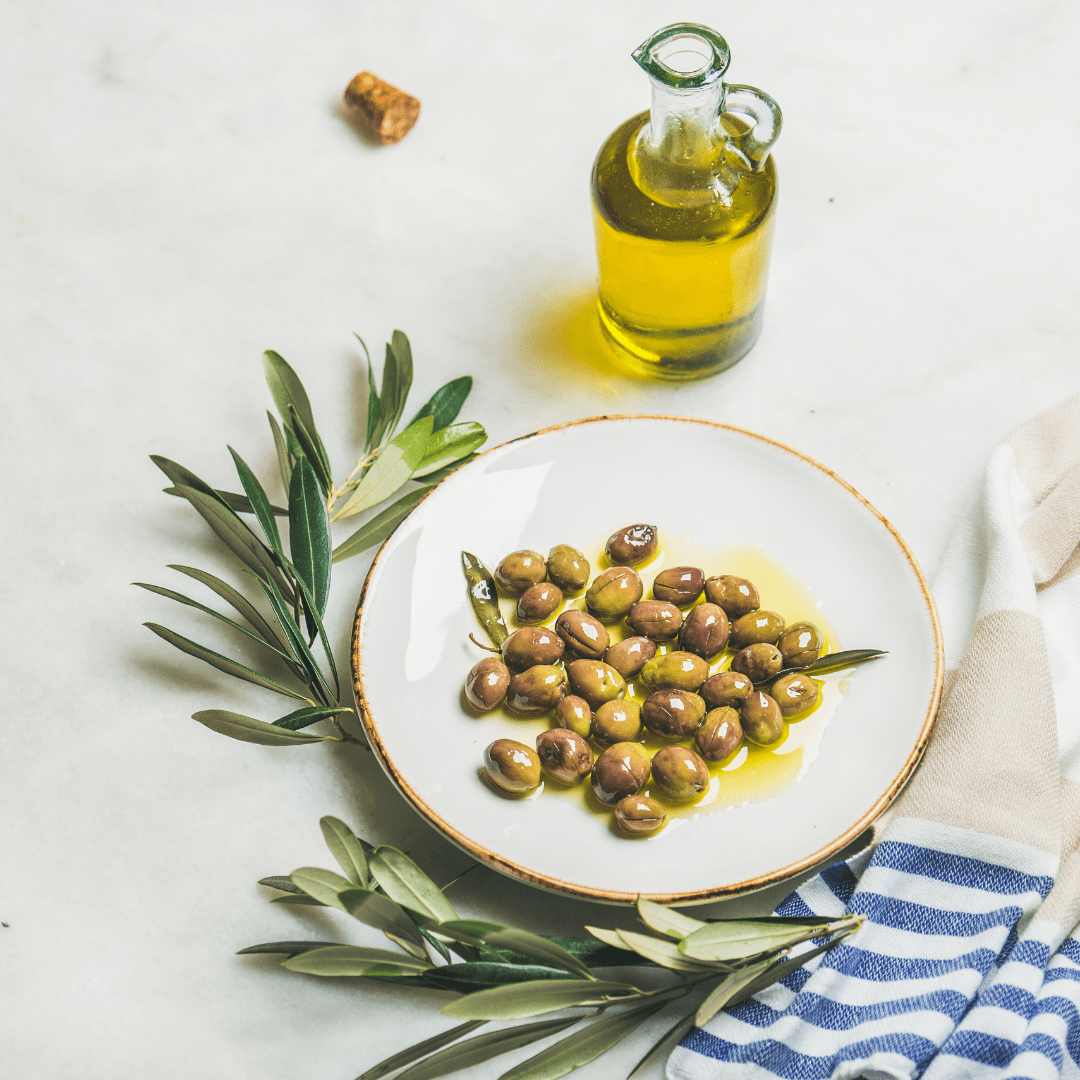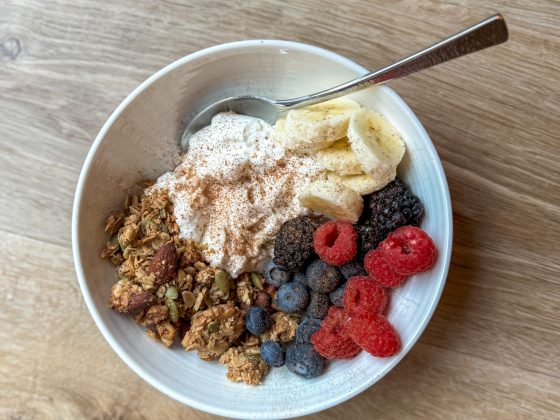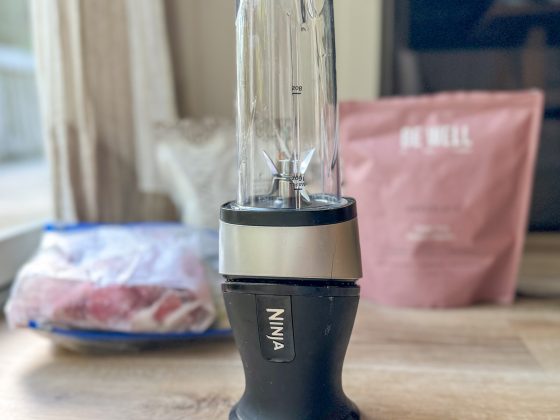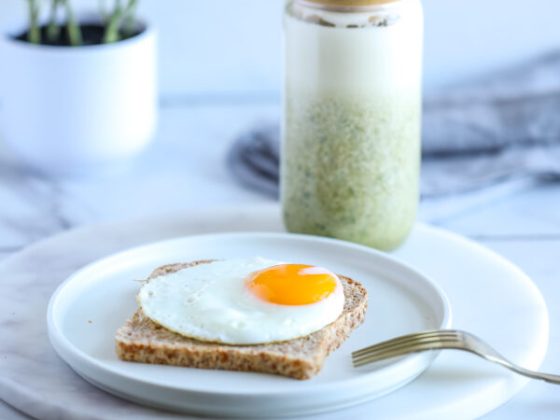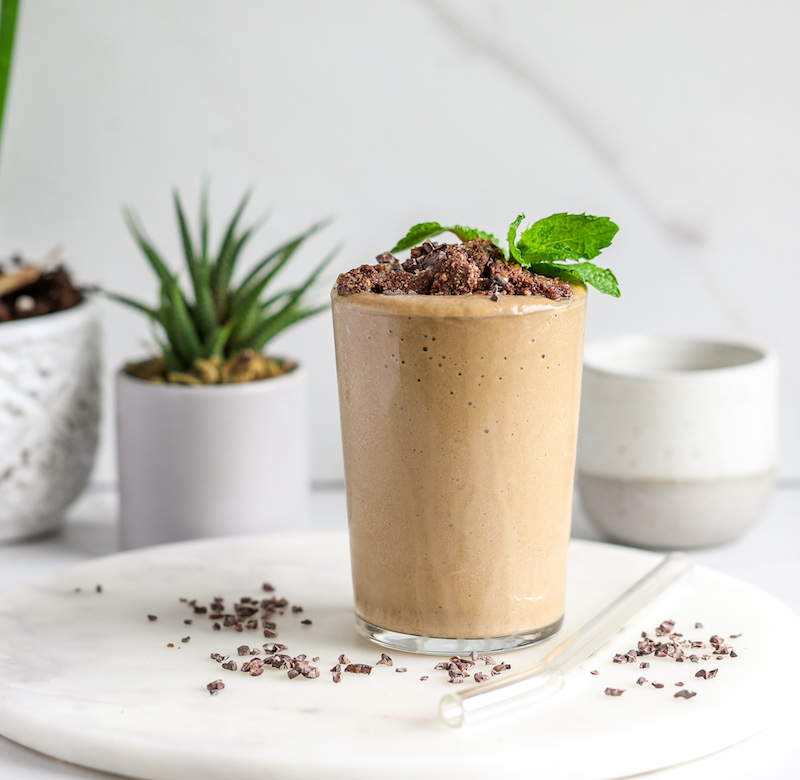The Mediterranean Diet, touted for decades now, can be thought of more of a guideline system and lifestyle method of eating, rather than a strict diet you may have tried in the past. Based on the diets of people in the Mediterranean region in the 1960s, it has been shown to lead to health benefits that this group had: things like weight loss, heart attack prevention, and lengthened life.
Rather than being particularly restrictive, the Mediterranean Diet simply recommends you stick primarily to certain categories and types of foods, prioritizing high amounts of fruits and veggies, legumes, potatoes, herbs, breads, whole grains, fish, seafood, and extra virgin olive oil, with smaller amounts of dairy, poultry, eggs, and yogurt. The diet generally avoids all processed and refined foods and sweets, and limits red meat to rare occasions.
Even if you’re not making a total switch to exclusively Mediterranean Diet meals, incorporating these ingredients into more of your meals right off the bat can put you closer to this eating lifestyle and better health.
Extra Virgin Olive Oil
This oil is a Mediterranean Diet staple, no doubt. It’s generally considered one of the healthier fats out there, but in the case of followers of this diet, olive oil generally replaces most other cooking fats or refined oils. Whenever possible, swap butter or margarine for olive oil and see if you notice a difference to your health. Eat raw in salads and when cooking veggies, use a drizzle to coat your pan. You can even use olive oil in many baking recipes and have very similar results, with a slightly more savory flavor profile (and a healthier dish).
Herbs & Spices
Another facet of the Mediterranean Diet is the use of plenty of fresh herbs and health-forward spices. Adding spices to your food provides a host of health benefits, everything from reducing nausea to decreasing inflammation. Incorporating lots of fresh herbs into your diet has been shown to reduce the risk for common illnesses like heart disease and diabetes. All of these are super common for the Mediterranean region, and they make your food taste great. Start adding more fresh mint, rosemary, sage, and other fresh herbs to dishes, and seasoning with things like garlic, cayenne, cinnamon, and nutmeg.
Fish & Seafood
If you don’t eat much fish already, increasing your intake (and replacing some of your beef, pork, and chicken with seafood) is a great way to emulate the Mediterranean Diet more and more. With the Mediterranean Sea right outside, people in this region naturally consume lots of extremely fresh fish, as well as things like mussels, oysters, and clams, all of which have amazing benefits and promote weight loss and overall body health.
Dates & Figs
In general, fresh fruits and vegetables are a major tenet of the Mediterranean Diet, but if you want to immediately add some Mediterranean zest to your selections, try dates or figs. These are two benefit-packed fruits that you may not already be eating and are very popular in this region. Dates are high in fiber and antioxidants, among other great health-promoting qualities. Figs, perfectly sweet and super versatile, are loaded with nutrients and vitamins and help with healthy digestion. Try grabbing one for a snack this week and see if you feel some Mediterranean effects.

